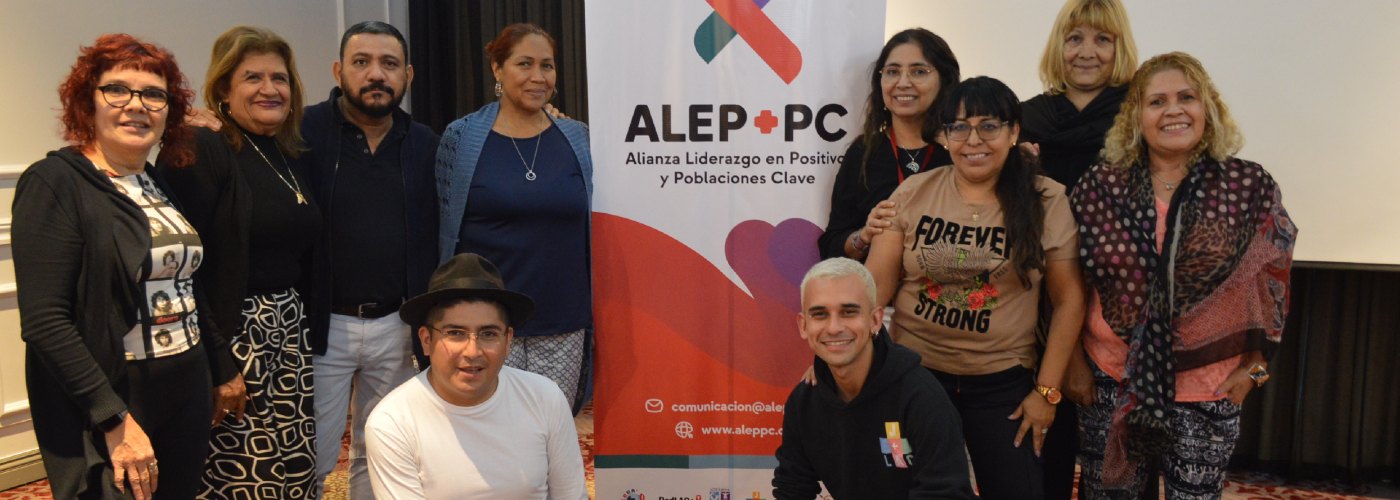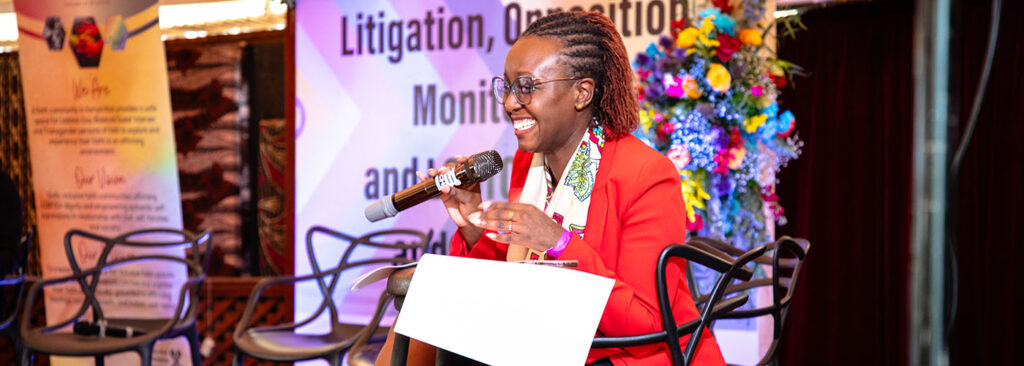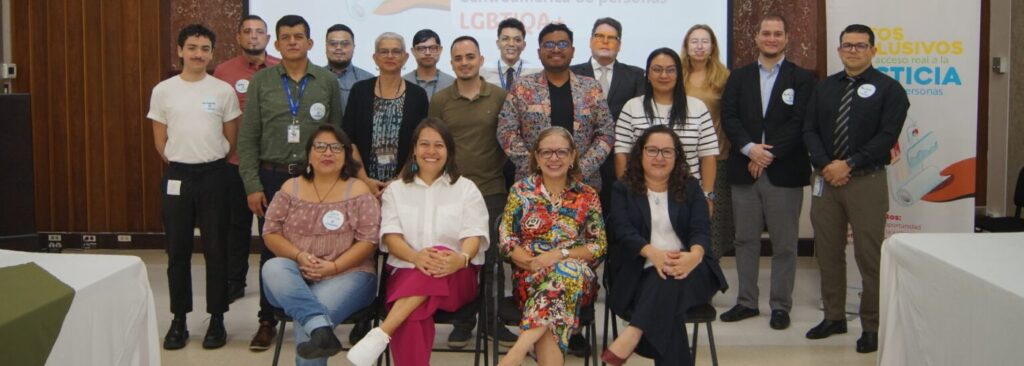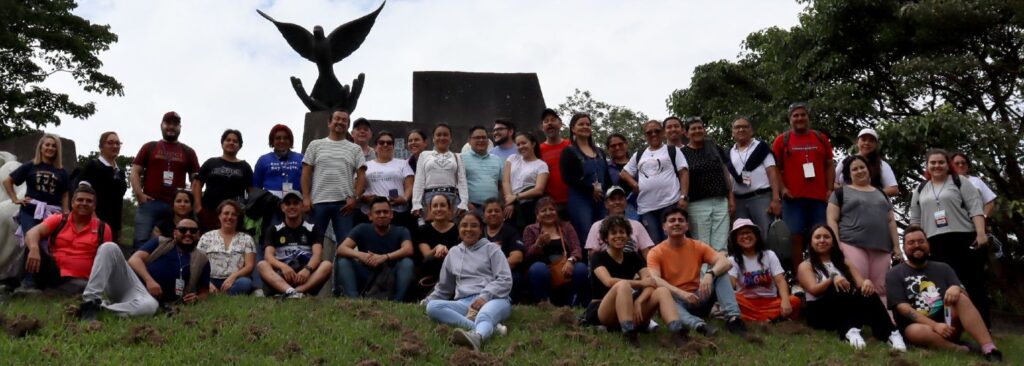This open letter is from the Positive Leadership and Key Populations Alliance (ALEP+PC), a regional initiative led by 10 regional networks of people living with HIV and key populations across Latin America. The alliance raises its concern about the Global Fund’s, the project’s donor, decision to pause the implementation of activities. Hivos is the Principal Recipient of ALEP+PC and fully endorses the letter below.
In recent days, the Global Fund to Fight AIDS, Tuberculosis and Malaria (Global Fund) announced its decision to “pause” the implementation of most activities of ongoing national and regional projects. This measure comes amid deep global financial uncertainty. And while we recognize the magnitude of the challenges, we cannot remain silent about the profound impact this will have on the communities we support and represent.
The project “Improving quality of life and the enjoyment of human rights of people living with HIV and key populations in Latin America / Abya Yala,” known as ALEP+PC, is not just another project. It is a unique initiative – born from, for, and by the communities, and built on a regional structure that centers the voices, experiences, and leadership of those historically most affected by HIV. Unlike other projects, ours has focused on strengthening political participation grounded in evidence, producing knowledge from the community, and developing transformative and innovative communication strategies. These are precisely the actions that have now been halted by the Global Fund’s decision.
“No medication reaches those who need it without strong community systems that inform, accompany, monitor, and transform the environments where that treatment must be delivered.”
Not the time for defunding
This is not the time for the Global Fund to turn its back on communities, nor to contribute to their destabilization through defunding. It is a violent and unnecessary measure, especially considering that the resources needed to implement these activities already exist, ready to be used. Yet, we are denied access to them.
We are deeply concerned by the lack of transparency in this process. Calling this a “pause” is misleading, especially when it is announced just before the official end of the project. It places communities in a space of false expectation, as by the time the “pause” is lifted, there will be no time left to implement the activities we have built collectively.
Our work is profoundly political. Through community participation, guided by the CLM model, we have generated valuable findings that allow us to advocate with evidence. Our efforts have not only engaged governmental programs and institutions, but also strategic allies who promote comprehensive care from a holistic, community-based approach. All of this has directly contributed to improving people’s quality of life.
And it is precisely in moments like this – marked by increasing defunding, invisibility, and the rise of anti-rights and hate-driven discourse – that it becomes even more urgent to protect and sustain the work of community networks and grassroots movements.
Saving lives
We understand that in times of crisis, funds are often prioritized for so-called life-saving actions. But let us be clear: community-led actions, advocacy, and broad communication about our lived experiences also save lives. No medication reaches those who need it without strong community systems that inform, accompany, monitor, and transform the environments where that treatment must be delivered. As other delegations have already recognized: life-saving services will never reach those who need them most without strong community systems in place.
“Communities cannot be treated as data repositories or models of best practice. Our strength is not raw material – it is living politics.”
We are deeply concerned that the Global Fund’s new direction may align with restrictive tendencies fueled by the new wave of conservative governments. It is dangerous to dilute the transformative power of Latin American social movements, when our struggles, knowledge, and experiences are used as technical inputs, but our voices are excluded from decision-making. Communities cannot be treated as data repositories or models of best practice. Our strength is not raw material – it is living politics.
An urgent call
Our project is set to conclude in September 2025. But if the strategic activities we have planned are interrupted now, a unique regional effort – one that has woven together voices, experiences, and knowledge for over five years – will also be interrupted. Voices and lives that cannot afford to wait. Voices that must not be silenced.
From ALEP+PC, we reaffirm the GIPA* principle and the need for people living with HIV and key populations to participate meaningfully in every decision that affects our lives. Not as observers. Not as validators. But as protagonists.
The Global Fund must listen to, value, and protect these spaces. Because you cannot pause life. You cannot pause justice. And you cannot pause a proposal that was born to transform our lives from the ground up, using political advocacy, evidence-based data, and inclusive communication as its core tools.
We make an urgent call for any adjustment or reprogramming process to consider the regional context and the differentiated impacts on our communities. There can be no unilateral pauses, no decisions made without dialogue, and no adjustments defined without the presence of those of us who live the consequences.
We are open to dialogue—but also prepared for collective action. And we call on all networks, allies, and civil society organizations across Latin America and the Caribbean to raise their voices. So that this pause does not turn into silence.
- The GIPA principle means the Greater Involvement of People Living with HIV and AIDS.




